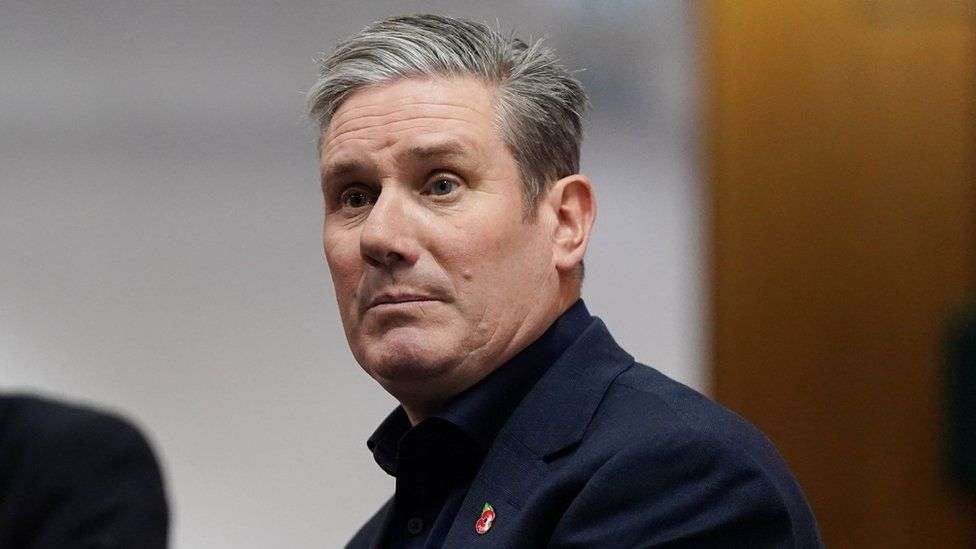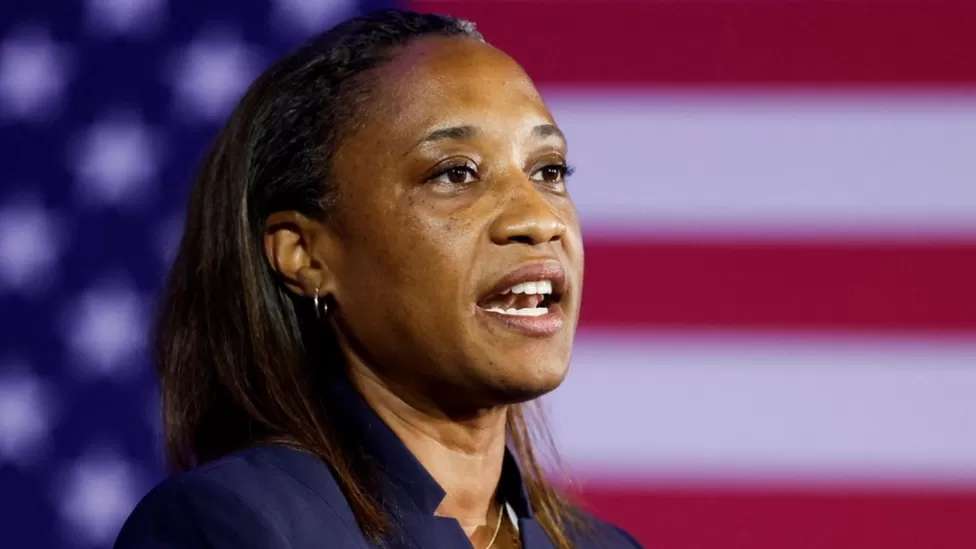Sir Keir Starmer is attempting to put Labour's position on the Israel-Hamas conflict to a vote, in a bid to maintain party unity.
The party has tabled a Commons amendment reflecting concerns over the civilian death toll, and urging longer pauses in the fighting to deliver aid.
But it echoes the Labour leader's position, and stops short of urging an immediate ceasefire in the conflict.
Dozens of Labour MPs have defied their leader to call for a ceasefire.
And 19 members of the frontbench have also publicly diverged from their party's official position.
One of them, shadow minister Imran Hussain, quit his position last week in order to campaign for an immediate ceasefire.
In addition, nearly 50 councillors have resigned from the party, over the leadership's position on the war.
Sir Keir has argued that a ceasefire would not be appropriate, because it would freeze the conflict and embolden Hamas.
Instead, Labour, like the Conservative government, the United States and the European Union, is calling for "humanitarian pauses" to help aid reach Gaza.
Compared with a formal ceasefire, these pauses tend to last for short periods of time, sometimes just a few hours. And they are implemented with the aim of providing humanitarian support only, as opposed to achieving long-term political solutions.
Last week, the US said Israel would begin to implement daily four-hour military pauses in areas of northern Gaza.
On Tuesday, shadow foreign secretary David Lammy called for a "comprehensive" humanitarian pause, while Foreign Office Minister Andrew Mitchell said "longer pauses that cover wider areas will be needed".
SNP vote
Labour's position is set to come under significant strain on Wednesday, with the Scottish National Party likely to secure a vote calling for a ceasefire.
This is also an amendment to the King's Speech, Prime Minister Rishi Sunak's programme for government unveiled last week.
Amid fears that several frontbenchers might resign their positions in order to vote for the SNP motion, Labour has submitted an amendment of its own, but it will be for Commons Speaker Sir Lindsay Hoyle to decide if either - or both - motions should be put to a vote on Wednesday.
The text of the Labour amendment supports Israel's right to self-defence after Hamas's "horrific terrorist attack" on 7 October, in which 1,200 people were killed and more than 200 taken hostage. It calls for the immediate release of all hostages.
But it also says there has been "too much suffering, including far too many deaths of innocent civilians and children" since Israel began striking Gaza in response.
The Hamas-run health ministry says more than 11,000 people have been killed in Gaza since then - of whom more than 4,500 were children.
The amendment calls on Israel to "protect hospitals and lift the siege conditions" on the territory, and urges longer humanitarian pauses to allow aid "on a scale that begins to meet the desperate needs of the people of Gaza".
It says this is a "necessary step to an enduring cessation of fighting as soon as possible and a credible, diplomatic and political process to deliver the lasting peace of a two-state solution".
Shadow cabinet minister Lisa Nandy did not say how Labour MPs would be expected to vote on the SNP motion if it is selected, adding this was "a matter for the chief whip".
However, Labour sources have told the OceanNewsUK that frontbenchers will be ordered to abstain if the SNP motion is picked.
The SNP motion says it "unequivocally condemns the horrific killings by Hamas and the taking of hostages" and "reaffirms that there must be an end to the collective punishment of the Palestinian people".
It calls for "the urgent release of all hostages and an end to the siege of Gaza to allow vital supplies of food, fuel, medicine and water to reach the civilian population".
It also notes "the growing calls for an immediate humanitarian ceasefire from the United Nations and its aid agencies; and therefore call on the Government to join with the international community in urgently pressing all parties to agree to an immediate ceasefire".
Face pressure
Supporters of Sir Keir's position are optimistic that the gambit could mean most resignations are avoided.
However, they concede that the question of backing a ceasefire has become the central issue for some of the MPs.
Sir Keir faced a backlash within his party for suggesting, during an interview in the days after Hamas's 7 October attack, Israel had the right to cut water and electricity off in Gaza as part of its response.
His spokesman later said he had meant only to say Israel had a general right to self-defence.
Sir Keir gave a speech at the end of last month to say he understood calls within his party for a ceasefire, while also arguing it was not the "correct position".
But he has continued to face pressure on his stance since then, with more MPs and councillors defying his position.








